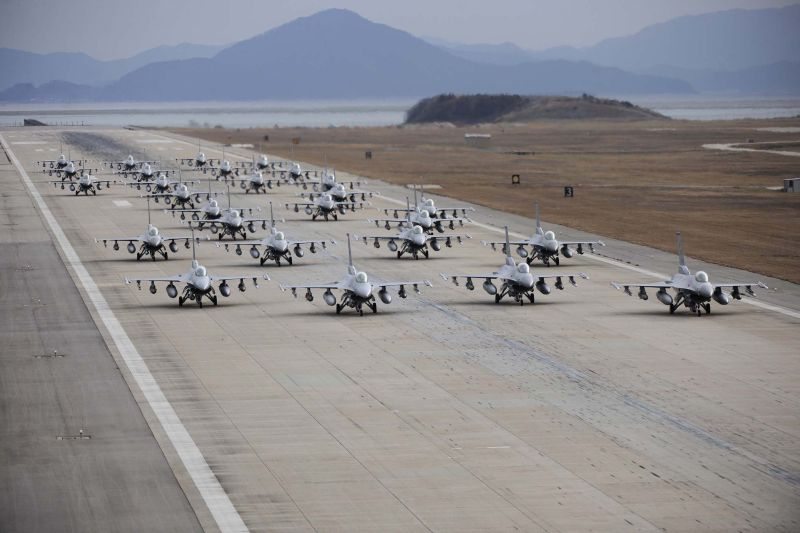Air Force officials announced proposed force structure changes which support the new DoD strategic guidance retiring 286 aircraft over the next five years, including 227 in fiscal year 13.
According to Secretary of the Air Force, Michael Donley, the Air Force is shaping itself for future challenges by realigning Air Force assets with the Defense Department’s new strategic guidance.
“We’ve had to adjust our force structure based on our strategic objectives and to balance capability and capacity with constrained budgets,” Donley said. “We must have the right tools and enough of them to credibly deter potential adversaries and to deliver on our objectives.”
The new strategic guidance requires the joint force to be capable of fighting one large scale, combined arms campaign with sufficient combat power to also deny a second adversary, and de-emphasized large-scale, prolonged stability operations. The Air Force’s approach to this new strategy is to retire fighter, mobility, and ISR that are beyond those needed to meet the capacity requirements of the new defense strategic guidance.
“Where possible, we attempted to retire all aircraft of a specific type, allowing us to also divest the unique training and logistic support structure for that aircraft,” Air Force Chief of Staff Gen. Norton Schwartz explained. “When that was not possible, we worked to retire the oldest aircraft first, and redistributed aircraft into effective and economical units, eliminating other units when that was most efficient. Where we retained older aircraft, we are taking steps to ensure they will remain viable into the future.”
Although the U.S. has removed all combat forces from Iraq and the new strategic guidance reduces the steady state requirement for ground forces, the Air Force expects steady state rotational requirements to remain constant, or perhaps increase.
According to Schwartz this continuing combatant commander requirement for Air Force aircraft and Airmen to deploy forward was a key factor in determining the required mix between Active and Reserve component forces due to differences in sustainable deployment rates and operations tempo.
Schwartz also explained the need for reductions in the Reserve Component.
“Two decades of military end strength and force structure reductions in our active duty component has changed the mix of active duty to Reserve Component forces,” Schwartz said. “We’ve carefully considered the mix and what the appropriate balance should be between the active and reserve components. The Reserve Component is a critical and essential part of our Total Force, but must be balanced and matched appropriately within a constrained fiscal environment.”
“We’re going to do this intelligently in a way that balances tempo, that keeps the right mix of assets, modern and less modern, in each of the components, and we’re doing this in an inclusive fashion with Air National Guard and Air Force Reserve leadership,” said Schwartz.
The Air Force is going to get smaller, and all of the components–active, guard and reserve– are going to get smaller together, he said.
Schwartz also emphasized that we will avoid a hollow force by protecting readiness at any force level, and strengthen our integration of the Total Force team of Active Duty, Guard, and Reserve Airmen.
“To ensure an agile and ready force, we made a conscious choice not to maintain more force structure than we could afford to properly train and equip,” Schwartz said. “We’ve taken this approach to preserve the capabilities the Nation requires of its Air Force.”
The announcement specifies the force structure changes experienced by the Total Force: Air Force Active Duty, Air National Guard, and Air Force Reserve and will save the Air Force $8.7 Billion over the next five years.
For fiscal years 2014-2017 the Air Force plans to reduce 50-plus aircraft from its inventory, continue to reshape the missions between the Total Force, and increase Reserve Component participation in the Intelligence, Surveillance and Reconnaissance as well as cyber missions.
Implementation of these actions will occur only after completion of appropriate environmental analyses. The Air Force is scheduled to announce related force structure manpower changes in March.
For more details about the Fiscal 2013 Force Structure changes click here.
(Mitch Gettle, Air Force Public Affairs Agency contributed to this article)










